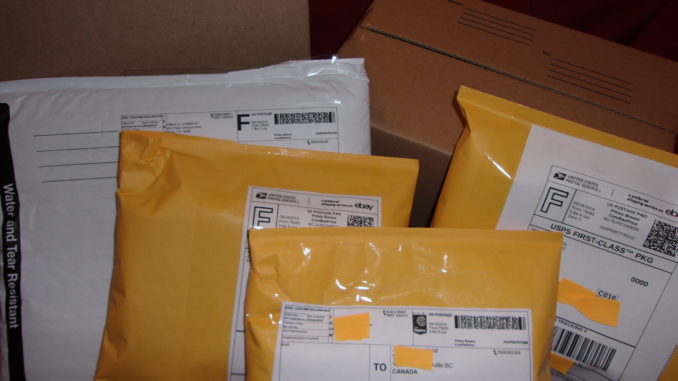
Next week, representatives for the Universal Postal Union meet in Geneva to discuss their prospective activities for the upcoming year and to set international postal rates. 191 of the 192 member nations have that on their agenda. The United States representative will be there potentially to tender our withdrawal. This will hurt most American businesses and consumers.
In order to legally withdraw from the UPU, a member nation must state its intent to do so a year in advance. The United States has done so, with a formal issuance made to the group and an associated press statement on October 17, 2018.
The reasons for withdrawal are both related to China. The UPU rates are set every year, with “terminal dues” used to balance costs throughout countries. Those dues are low for developing nations, high for the traditional “Western World” countries; this arranges a form of cost-sharing which allows packages to be sent across the world at reasonable rates. China’s import fees were set in 1969, when it was still considered a developing nation, and this provides them a monetary advantage over other countries and even some interstate shipping costs.
Because the American Postal Service is covering some of the burden of shipping costs from China, Chinese businesses have a material advantage in the U.S. marketplace. The same holds for most other “Western” nations.
The other issue is opioid proliferation through the mail. Because small packages can be shipped at very low cost from China, packages with drugs can be cheaply distributed by unsuspecting mail carriers directly to addicts’ homes.
Those are the reasons to withdraw. There are also consequences… and in this case, the consequences are significant.
First, to address the simpler issue, the opioid problem: while it is undeniably true that raising the cost of shipping drugs into the United States will make distribution more problematic for Chinese drug firms, the United States has already taken action on this front, and it’s been working. The U.S. has successfully pressed the U.P.U. to initiate a system of Advanced Electronic Data in order to allow customs inspectors to pre-screen for likely drug transfers. This has had the additional benefit of improving international postage tracking.
If the U.S. withdraws from the UPU as expected, access to the electronic data will be blocked; the pre-screening which has been successfully used to catch drug shipments will go away, as will much of people’s abilities to track the movements of internationally shipped letters and packages.
Second, because the UPU sets rates, the United States will immediately be placed in a situation where they will be negotiating new rates with all of those member nations. The current costs are low because base costs have discounts set by the UPU; any interim costs for US shipping will be higher, until such time as any new rate may be negotiated. As the U.S. has been engaging in trade wars with both enemies and allies, there will be little incentive to expedite any such rate discounts.
In short, international postal rates will go up if we withdraw from the UPU, and in many cases they will rise dramatically.
This is going to hit the average person who is sending a parcel to a family member overseas (including military members.) It will hit small businesses who buy specialty items crafted or forged overseas. And it will hit large businesses who depend on fast shipping of internationally sourced parts for their machinery.
Manufacturing businesses in direct competition with China may see enough of a boost to offset their losses and even provide a net gain; outside of them, the only people to benefit will be U.S. federal officials wishing to further distance the U.S. from world markets.

1 Trackback / Pingback
Comments are closed.